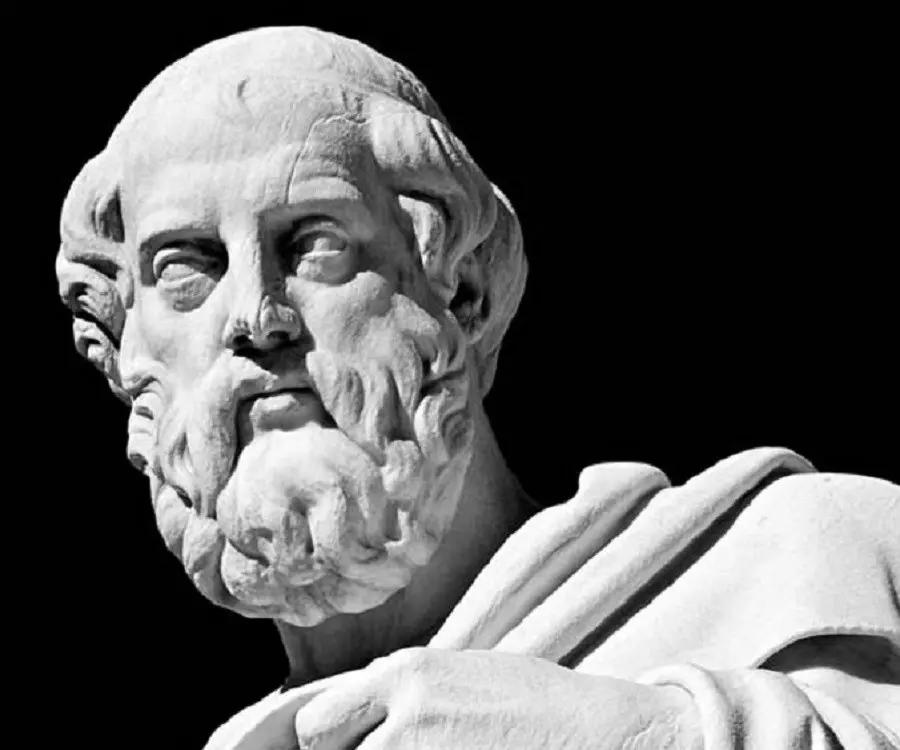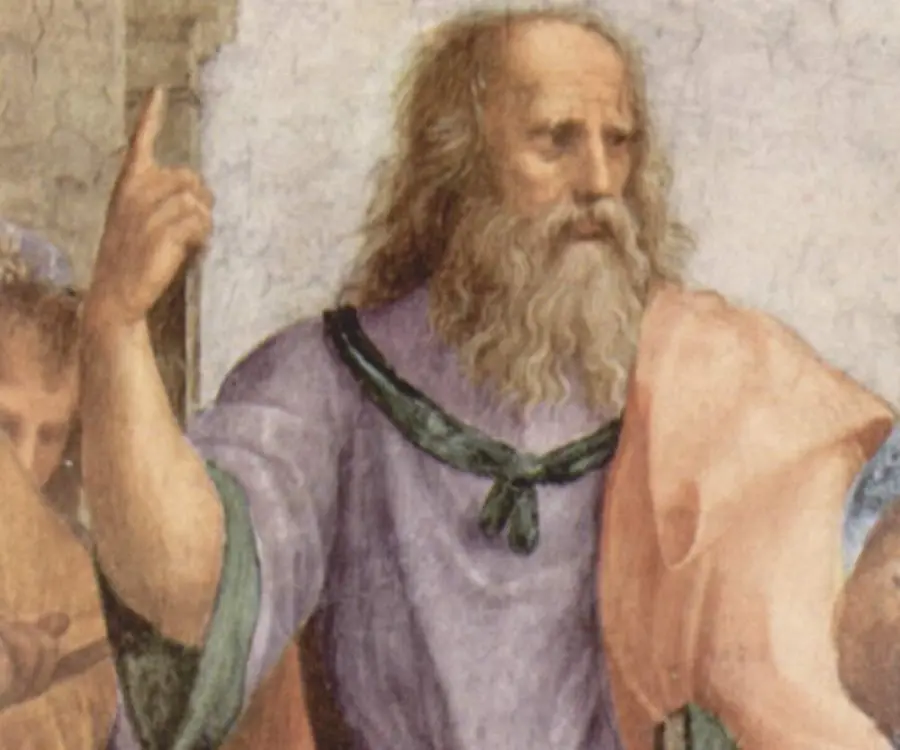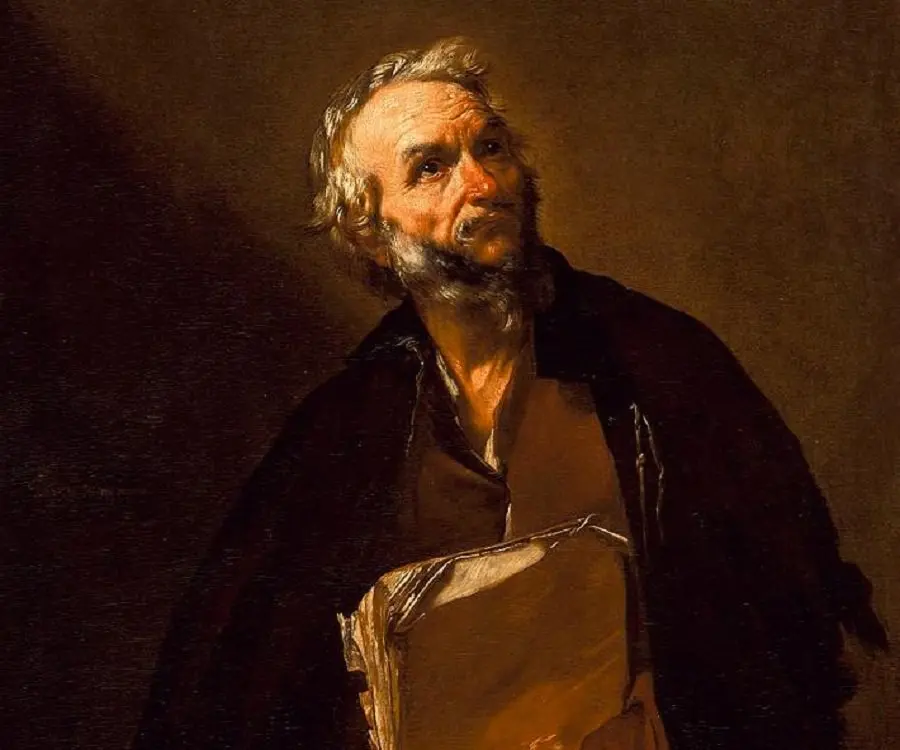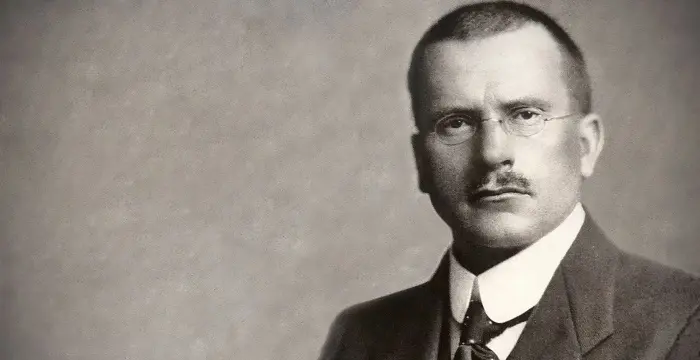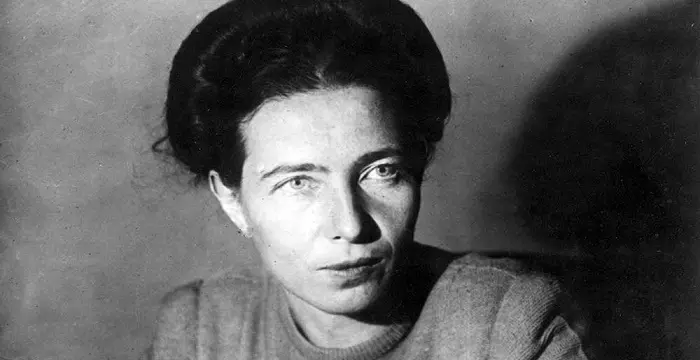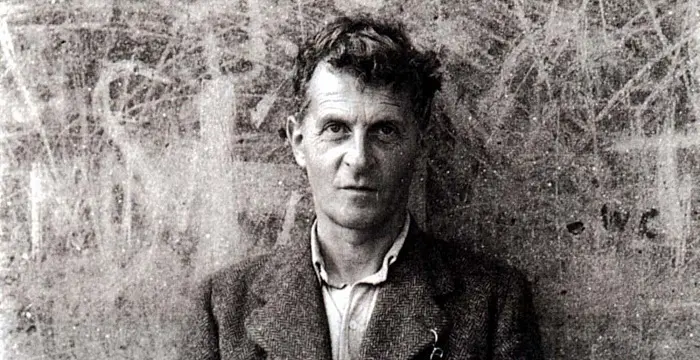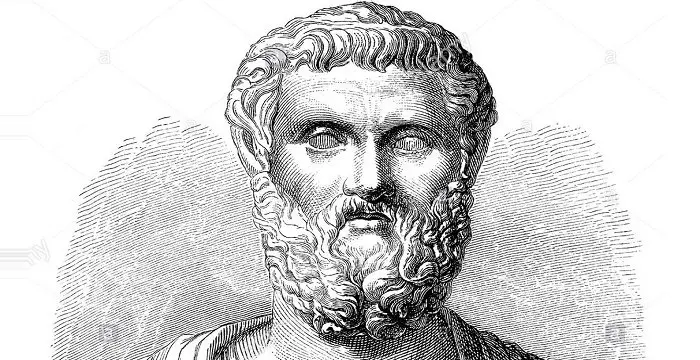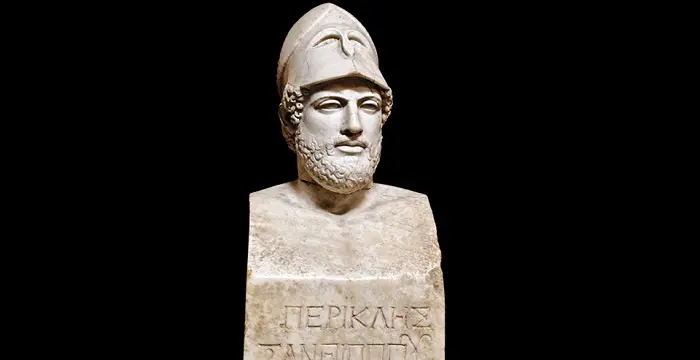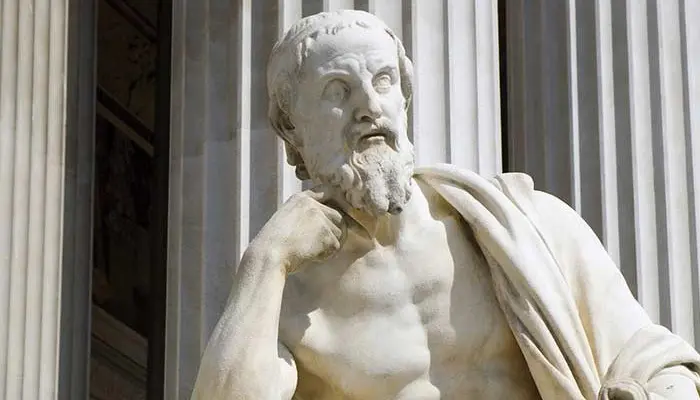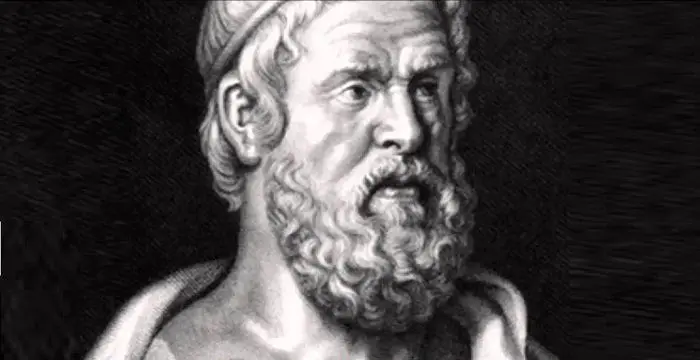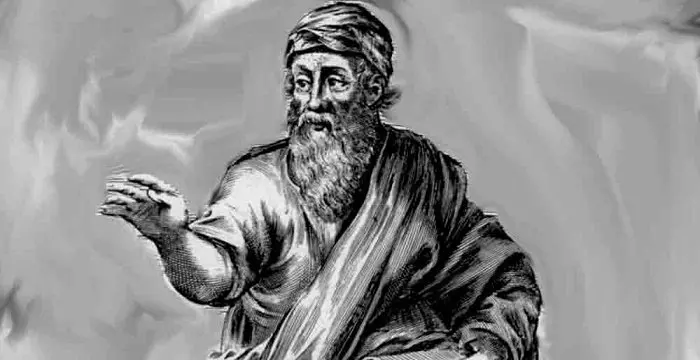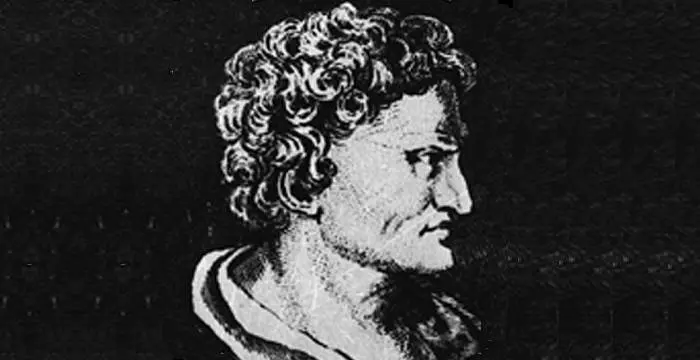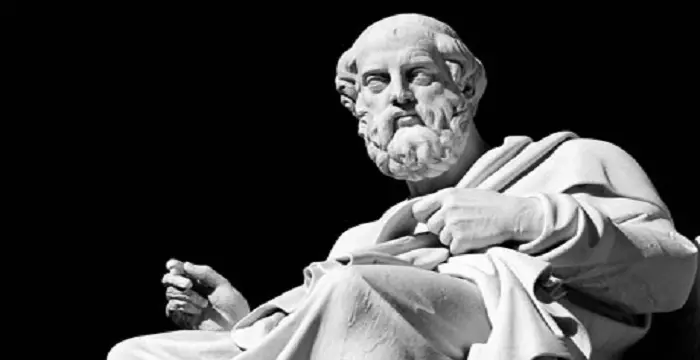
Plato - Intellectuals & Academics, Family and Personal Life
Plato's Personal Details
Plato was a classical Greek philosopher &mathematician who was one of the founders of Western philosophy
| Information | Detail |
|---|---|
| Birthday | 428 BC |
| Nationality | Greek |
| Famous | Intellectuals & Academics, Philosophers, INFJ |
| Siblings | Antiphon |
| Birth Place | Athens |
| Gender | Male |
| Father | Ariston |
| Mother | Perictione |
| Born in | Athens |
| Famous as | Philosopher |
| Died at Age | 80 |
// Famous Philosophers
Martin Buber
One of the greatest philosophers to have ever walked on earth, Martin Buber contributions to philosophy is a long-standing one. Explore all about his profile, childhood, life and timeline here.
Lao Tzu (Laozi)
Lao Tzu was a legendary Chinese philosopher who wrote the important “Daodejing”. This biography profiles his childhood, life, career, achievements and timeline.
Alan Watts
Alan Watts was a famous British philosopher known for his Zen teachings and interpretations of Eastern philosophy. Read more about this great philosopher in the following article.
Plato's photo
Who is Plato?
Plato was an ancient Greek philosopher who played an important role in the development of Western philosophy. As a scion of a rich and aristocratic family, he received good education under renowned teachersincluding Socrates. Although initially he wanted to join politics, the execution of Socrates changed his mind and he left Athens for twelve years, visiting places around the Mediterranean Sea, studying under different teachers. It was during this period that he first started writing. That Plato was immensely influenced by Socrates is evident from his body of works created during this period. Ultimately, he returned to Athens and set up the first organized school in the western civilization. It soon turned into a center of excellence and many well known scholars, including his famous pupil Aristotle, became associated with it. Plato never stopped writing; his masterpieces like ‘The Republic’ and ‘Theory of Forms’ were created during his later years. Along with Socrates and Aristotle, Plato is credited to have laid the foundations of Western philosophy and science. Fortunately, most of his works have survived intact for over 2,400 years although few of his predecessors' works remain extant.
// Famous Intellectuals & Academics
Bertil Gotthard Ohlin
Bertil Gotthard Ohlin was a famous Swedish economist. This biography profiles his childhood, family life & achievements.
Emily Greene Balch
Emily Greene Balch was an American economist, sociologist and pacifist who won the 1946 Nobel Peace Prize. This biography of Emily Greene Balch provides detailed information about her childhood, life, achievements, works & timeline.
Martin Buber
One of the greatest philosophers to have ever walked on earth, Martin Buber contributions to philosophy is a long-standing one. Explore all about his profile, childhood, life and timeline here.
Childhood & Early Life
Plato was bornin fifth century BC into a wealthy and aristocratic family from Athens. Some scholars believe that he was named Aristocles after his grandfather and was later called Plato because of his broad physical built. However, there is no indisputable evidence in this regard.
There is also a controversy about the year as well as the place of his birth. Initially, the year of his birth wasidentified as 428 BC but after analyzing the events of his life, modern historiansbelieve it was around 424/423 BC.
While some scholars have identified the place of his birth as Athens, others believe that he was born in Aegina, located at a distance of 27 km from the city. However, it isuniversally acceptedthat he was mostly brought up in Athens in the house of his stepfather Pyrilampes.
Plato’s father, Ariston of Collytus, was a descendent of Codrus, the ancient king of Athens while his mother, Perictione, was a descendant of Solon, the Athenian lawgiver and poet. Plato had two brothers, Glaucon and Adeimantus and a sister named Potone.
Ariston died when Plato was a still a child. Thereafter, his mother married the Athenian statesman Pyrilampes, who was also her uncle. Platohad a stepbrother named Antiphon from this union.
Not much is known about Plato’s early life. However, Speusippus, his nephew by his sister Potone, who later became a renowned philosopher himself,had talked about Plato’s modesty and quickness of mind in his discourses. He also mentioned that he was a hard working boy and had a love for learning.
It is possible that Plato had studied grammar, music and gymnastics under renowned educators of that time. From the writings of Aristotle, we also know that Plato studied under Athenian philosopher Cratylus, who introduced him to the teachings of Heraclitus
As a young man Plato came in contact with Socrates, who was his uncle’s friend. Young as he was, Plato was much impressed by Socrates’ method of dialogue and debate. Subsequently, he became close to the elder scholar and was included in his circle.
At that time, Athens was at war with Peloponnesian League, led by Sparta. Plato joined the war in 409 BC and fought alongside the Athenian soldiers for five years before the war ended in 404 BC with the defeat of Athens.
Till then, Athens had been under democratic rule, but now Sparta replaced it with oligarchy, headed by thirty pro-Spartan leaders, who later came to be known as the ‘Thirty Tyrants.’ Although it included two of Plato’s relatives, he was very upset about the state of affairs at Athens.
The oligarchy continued for thirteen months, after which the tyrants were overthrown and democracy was restored in 403 BC. Plato now thought of joining politics. Around this time, he remained close to Socrates and soon became his best disciple.
In 399 BC, Socrates was unfairly executed on the charge of corrupting the youth. It affected Plato to such an extent that he gave up his goal of joining politics and set out on a tour.
Later Life & Career
After leaving Athens, Plato travelled for twelve years, visiting places around the Mediterranean coast such as Syracuse (Sicily), Italy, Egypt and Cyrene (Libya). For some time, he studied mathematics under the Pythagoreans in Italy. What he learned there later helped him to form his own ideas.
In Egypt,he studied geometry, geology, astronomy and religion. It was here that he learned to make water clock, which he later introduced in Athens. This was also the time he started writing extensively.
It is believed ‘The Apology of Socrates’, his first major work, was written shortly after the death of Socrates. Some other works of this period are ‘Protagoras’, ‘Euthyphro’, ‘Hippias Major and Minor’ and ‘Ion’. All these were written in dialogue form through which Plato attempted to convey the philosophy and teachings of Socrates.
Around this time Plato also visited Syracuse, which was under the rule of tyrant king Dionysius I, whose brother-in-law Dion had become Plato’s disciple. It angered Dionysius and Plato was sold into slavery. Fortunately, Anniceris, another of his disciples, was able to buy his freedom for twenty minas and send him home.
Plato returned to Athens in 387 BC. In the same year, he founded his ‘Academy’ on a plot of land in the Grove of Academus, outside the city wall of Athens. It is said to be the first organized school in the western world. Plato’s famous book, ‘The Republic’ was written sometime during this period.
In 367 BC, Plato travelled once more to Syracuse on the invitation of Dion, who was also the uncle as well as the adviser of the new King Dionysius II. Both Dion and Plato had hoped that he would be able to turn Dionysius II into a philosopher king.
However, their hopes soon turned to ashes. Dionysius II began suspecting Dion of conspiring against him. As a result of this, Dion was sent to exile and Plato was put under house arrest. On being released, Plato returned to Athens and resumed his academic career.
Now, the role of art and culture as well as ethics and morality began to take a more prominent place in Plato’s thought. More importantly, he now began to develop his own metaphysical ideas and explore the fundamental nature of being and the world encompassing it.
Major Works
The school that Plato opened after returning to Athens is one of his major contributions to the development of western civilization. It was probably know as ‘Akademia’ because it was located at the Grove of Academus. It is believed that the word ‘academy’ has been derived from it.
Led by great scholars like Speusippus, Xenocrates, Polemon, Crates, and Arcesilaus, the academy continued to function tillits destruction in 84 BC. After that, it was revived many times. Today we can safely say that it was the forerunner of the modern educational system.
Plato is also remembered for the body of works that he left behind. ‘The Republic’, a Socratic dialogue written in around 380 BC, is one of his most famous works. In this book, Plato has defined his concept of justice and also the characteristics of a just city-state and the just man.
‘Theory of Forms’, written during his later period,is another of his well-known works. In it, Plato had suggested that the material world as we see it is not the real world. This changeable world is actually an ‘image’ or ‘copy’ of the actual world.
Death & Legacy
It is generally accepted that Plato passed away in around 348/347 BC at Athens. However, like many other events of his life, there is a controversy about how he died.
Some scholars are of the opinion that he passed away peacefullyin his sleep while others believehe breathed his last whilelistening to a young Thracian girl playing the flute. Still others believe that his death came while attending a wedding feast.
Today, the scholars consider him to be the central figure in the development of western philosophy, science and mathematics. Some also refer to him as one of the founders of western religion and spirituality.
More than two thousand years have passed since Plato’s death. Yet he is still remembered all over the world with reverence and scholars often quote him while discussing different philosophical issues. Such is Plato’s legacy.
// Famous INFJ
Carl Jung
Carl Jung was a Swiss psychiatrist famous for founding the school of analytical psychology. This biography of Carl Jung provides detailed information about his childhood, life, achievements, works & timeline.
Simone de Beauvoir
Simone de Beauvoir was an eminent French writer, intellectual, activist, and philosopher. This biography profiles her childhood, life, thoughts, achievements and timeline.
Ludwig Wittgenstein
Ludwig Wittgenstein is a renowned philosopher. Read on to know about the life, career, and works of the famous Austrian philosopher Ludwig Wittgenstein.
Plato biography timelines
- // 428 BC To 424 BCThere is also a controversy about the year as well as the place of his birth. Initially, the year of his birth wasidentified as 428 BC but after analyzing the events of his life, modern historiansbelieve it was around 424/423 BC.
- // 403 BCThe oligarchy continued for thirteen months, after which the tyrants were overthrown and democracy was restored in 403 BC. Plato now thought of joining politics. Around this time, he remained close to Socrates and soon became his best disciple.
- // 399 BCIn 399 BC, Socrates was unfairly executed on the charge of corrupting the youth. It affected Plato to such an extent that he gave up his goal of joining politics and set out on a tour.
- // 387 BCPlato returned to Athens in 387 BC. In the same year, he founded his ‘Academy’ on a plot of land in the Grove of Academus, outside the city wall of Athens. It is said to be the first organized school in the western world. Plato’s famous book, ‘The Republic’ was written sometime during this period.
- // 380 BCPlato is also remembered for the body of works that he left behind. ‘The Republic’, a Socratic dialogue written in around 380 BC, is one of his most famous works. In this book, Plato has defined his concept of justice and also the characteristics of a just city-state and the just man.
- // 367 BCIn 367 BC, Plato travelled once more to Syracuse on the invitation of Dion, who was also the uncle as well as the adviser of the new King Dionysius II. Both Dion and Plato had hoped that he would be able to turn Dionysius II into a philosopher king.
- // 348 BCIt is generally accepted that Plato passed away in around 348/347 BC at Athens. However, like many other events of his life, there is a controversy about how he died.
// Famous Greek peoples
Solon
Solon was an Athenian lawmaker, poet and politician. He is considered as one of the ‘Seven Wise Men’ in Greek culture. This biography provides detailed information about his childhood, life, career, works, achievements and timeline.
Pericles
Pericles was an important Greek statesman, orator, patron of the arts, politician, and general of Athens who lived from 495–429 B.C. Check out this biography to know about his childhood, life, achievements, works & timeline.
Herodotus
Herodotus was a Greek historian widely referred to as 'The Father of History'. This biography of Herodotus provides detailed information about his childhood, life, achievements, works & timeline.
Aeschylus
Aeschylus was an eminent Greek tragedian. Go through this biography to know in details about his childhood, life, profile, and timeline.
Pythagoras
Pythagoras of Samos was a Greek mathematician and philosopher. Read on to learn more about Pythagoras’s profile, childhood, life and timeline.
Hipparchus
Hipparchus was a Greek astronomer and mathematician. This biography profiles his childhood, life, achievements and timeline.
Plato's FAQ
When was Plato died?
Plato was died at 2020-04-14
Where was Plato died?
Plato was died in Athens
Which age was Plato died?
Plato was died at age 80
Where is Plato's birth place?
Plato was born in Athens
What is Plato nationalities?
Plato's nationalities is Greek
Who is Plato siblings?
Plato's siblings is Antiphon
Who is Plato's father?
Plato's father is Ariston
Who is Plato's mother?
Plato's mother is Perictione
How famous is Plato?
Plato is famouse as Philosopher



